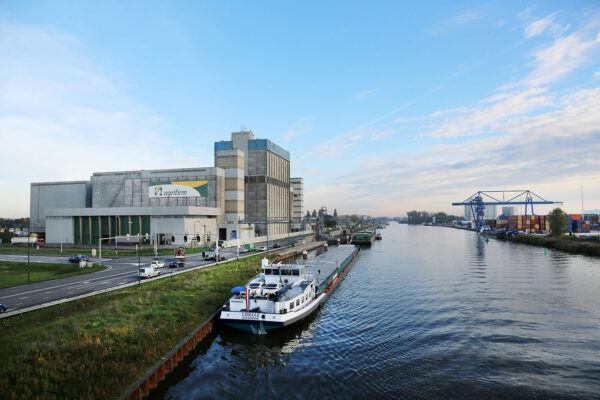
The international alt-right has picked the wrong side in the Dutch farm crisis.
Former American president Donald Trump, French National Rally leader Marine Le Pen, Danish climate-change sceptic Bjørn Lomborg and media like Breitbart, The Federalist, Fox News and The Spectator may think they’re backing the little guy against out-of-touch political elites, but they’re doing the bidding of Big Ag.
In Areo Magazine, I point out that the farmers protesting in the Netherlands are funded by three of the largest animal feed companies in the world as well as dairy and meat processors. They stand to lose the most from a reduction in livestock farming.
Too many animals emit too much ammonia
The Netherlands is the top meat exporter in Europe and the fifth-largest dairy exporter in the world. To produce so much meat, milk and cheese, it needs almost as many cows and pigs as people: 16 million. The country also has 100 million chickens and with it the highest livestock density in the world.
Animal manure is the Netherlands’ main source of ammonia pollution. In the EU, only Malta has higher emissions per hectare.
Manure can be used as fertilizer, but too much of it kills the very microbes in the soil that make it fertile. It also seeps into the groundwater, which farmers use to irrigate their crops and which Dutch people drink, causing eye and nose irritation and lung damage in people and animals.
Ammonia is especially dangerous to plants, insects and birds in conservation areas. The Netherlands has lost 70 percent of its insect population in the last thirty years. It has been in constant violation of EU protections for birds and habitats since those regulations were introduced in the 1990s.
Farmers struggle to keep their heads above water
Piecemeal reforms and technologies like air purifiers have reduced emissions by 65 percent from a peak in the 1990s.
To cut emissions further, the government has proposed to buy out or relocate one in three livestock farmers, or 11,000. Another 17,000 would need to downsize.
Farmers argue that’s impossible as long as they don’t fetch a better price for dairy and meat. In previous years, one in three didn’t even earn a minimum wage.
Farms have grown as profit margins have narrowed. The average Dutch dairy farmer has gone from 62 to 108 cows in two decades, the average pig farmer from 900 to 3,400 pigs.
Many farmers weren’t able to scale up: 45,000 out of 97,000 quit in the same period.
Agro conglomerates make big profits
Farmers have little bargaining power. Only a few companies sell animal feed, pesticides and milking robots. Five wholesalers have 80 percent of the market. Three in four dairy farmers work for FrieslandCampina.
The agro conglomerates make big profits. The companies that fund the farmers’ protests — Agrifirm, De Heus and ForFarmers (animal feed), Royal A-ware (dairy) and Vandrie Group (beef and veal) — had a combined turnover of €8.7 billion (1 percent of Dutch GDP) last year, when they made a profit of €212 million. Little wonder they don’t want to change.
Factory farming is brutal to animals
It’s not just farmers who feel exploited: 64 percent say factory farming is a dead end. Cows and pigs live short and brutal lives. (Conditions for chickens have improved with an EU ban on battery cages and an increase in the sale of free-range eggs.)
A third never see daylight until they are transported to slaughter. The average pig lives on one square meter, the legal minimum. Boredom and overcrowding cause some pigs to become aggressive. Many farmers cut off the tails of piglets, so that they cannot be bitten off by adult pigs later in life. Dairy cows expire after six or seven years, when their natural life expectancy is fifteen to twenty years. 27 percent develop udder inflammation from overmilking. Falls and lameness are common among cows and pigs who sleep and walk on concrete floors, which is nearly all of them.
If that’s how Trump, Le Pen, Lomborg, Breitbart, The Federalist, Fox News and The Spectator think farming should be done, let them say it. But stop it with the nonsense about plucky Dutch farmers standing up to a nefarious green agenda.
Click here to read the rest of my story in Areo.
